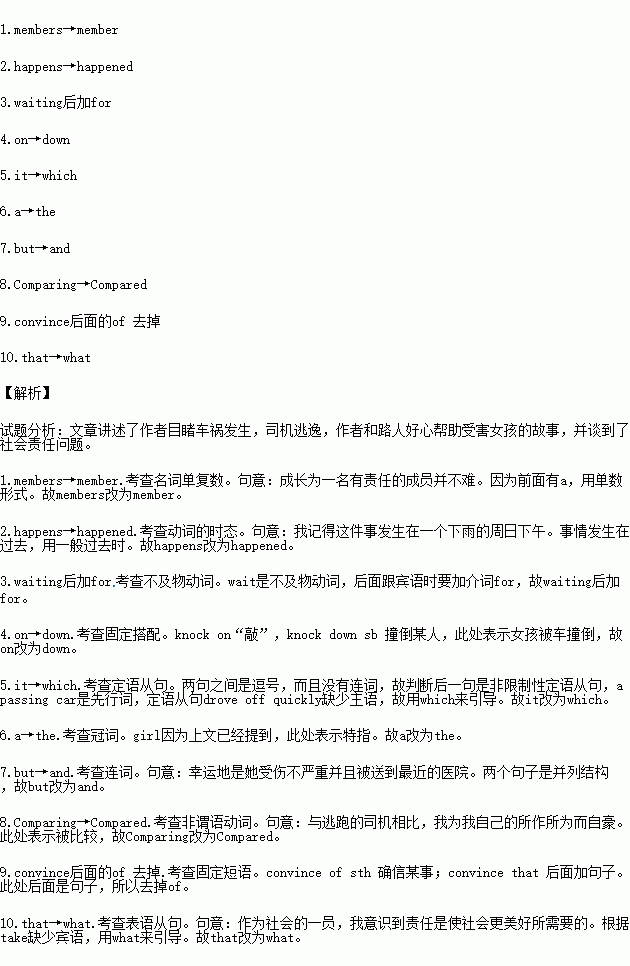ΧβΡΩΡΎ»ί
ΕΧΈΡΗΡ¥μ
ΦΌΕ®”Δ”οΩΈ…œάœ Π“Σ«σΆ§Ήά÷°ΦδΫΜΜΜ–όΗΡΉςΈΡΘ§«κΡψ–όΗΡΡψΆ§Ήά–¥ΒΡ“‘œ¬ΉςΈΡΓΘΈΡ÷–Ι≤”–10¥Π”ο―‘¥μΈσΘ§ΟΩΨδ÷–ΉνΕύ”–ΝΫ¥ΠΘ§ΟΩ¥Π¥μΈσΫω…φΦΑ“ΜΗωΒΞ¥ ΒΡ‘ωΦ”ΓΔ…Ψ≥ΐΜρ–όΗΡΓΘ
‘ωΦ”ΘΚΑ―»±¥ ¥ΠΦ”Ηω¬©Ή÷ΖϊΚ≈Θ®ΓΡΘ©Θ§≤Δ‘ΎΤδœ¬Οφ–¥≥ωΗΟΦ”ΒΡ¥ ΓΘ
…Ψ≥ΐΘΚΑ―Εύ”ύΒΡ¥ ”Ο–±œΏΘ®\Θ©Μ°ΒτΓΘ
–όΗΡΘΚ‘Ύ¥μΒΡ¥ œ¬Μ°“ΜΚαœΏΘ§≤Δ‘ΎΗΟ¥ œ¬Οφ–¥≥ω–όΗΡΚσΒΡ¥ ΓΘ
ΉΔ“βΘΚ1ΟΩ¥Π¥μΈσΦΑΤδ–όΗΡΨυΫωœό“Μ¥ ΘΜ2÷Μ‘ –μ–όΗΡ10¥ΠΘ§Εύ’ΏΘ®¥”ΒΎ11¥ΠΤπΘ©≤ΜΦΤΖ÷ΓΘ
It isnΓ·t hard to grow up into a responsible members of society. I can well remember an incident that happens on a rainy Sunday afternoon. I was on my way to the bookstore and was waiting the green light at a crossing when a girl about ten was knocked on by a passing car, it drove off quickly. A man immediately rushed to a girl to give her first aid and I joined in without hesitation. Luckily she was not badly injured but we sent her to the nearest hospital. Comparing with the escaped driver, I am proud of what I did.
As a member of the society, I am convinced of that being responsible is that it takes to make a better society.

